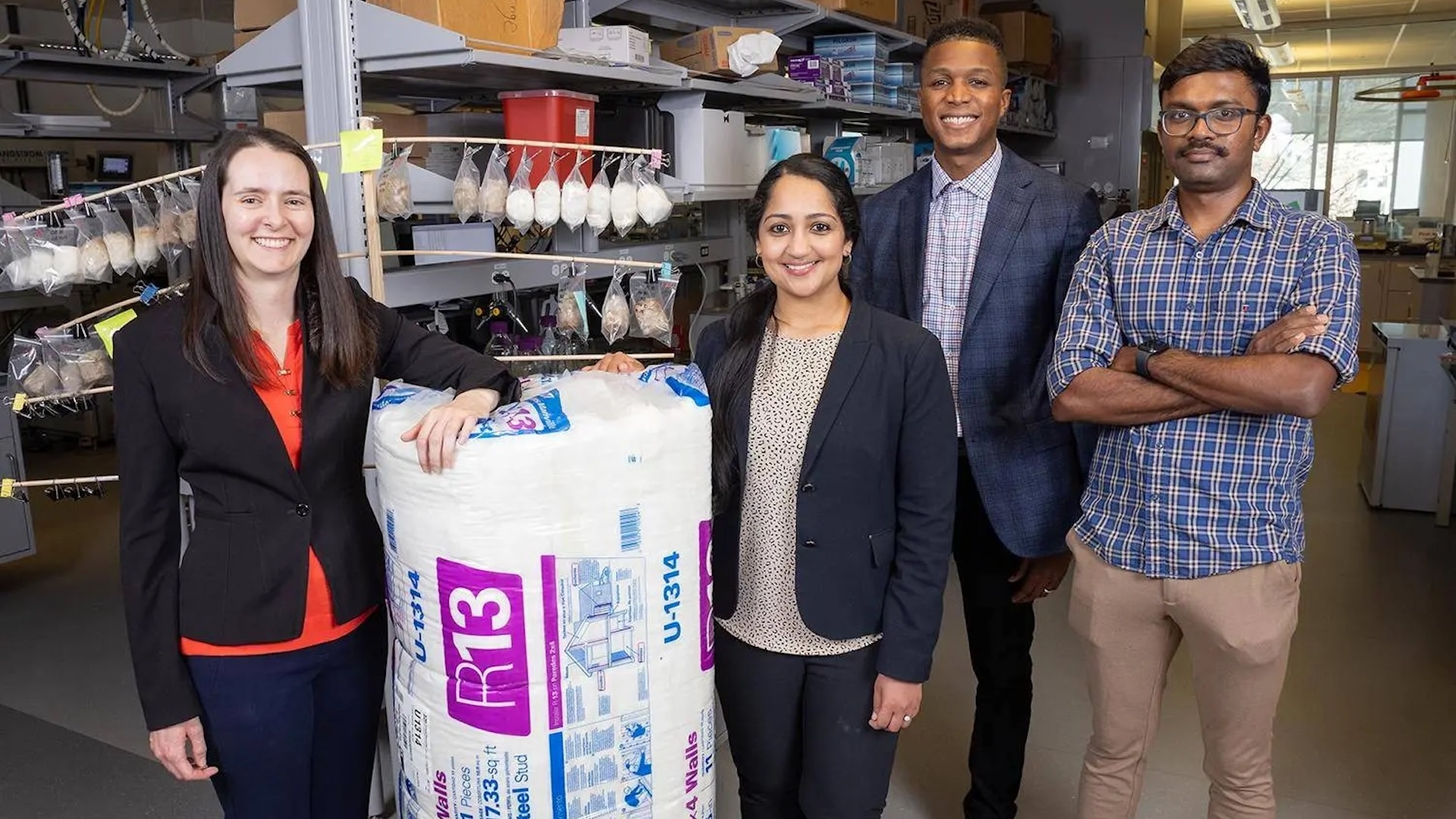[[{“value”:”
The residential and commercial sectors are responsible for around 31% of planet-warming pollution in the U.S., generated from using dirty fuels for heating and cooking, to electricity consumption supporting heating, air conditioning, and more.
To reduce that environmental impact, engineers at Georgia Tech are exploring the viability of scaling up hemp-based insulation production, as a report shared by Tech Xplore explained.
They see the increased use of this sustainable material as a way to develop greener homes and buildings while creating jobs. At its current scale, however, hemp is too expensive to compete with less eco-friendly alternatives.
“Existing economic modeling studies were mostly limited to data on purchase price, finding that hemp insulation is more expensive than conventional installations. We wanted to go a different route, modeling from the industry’s perspective,” said Arjun Thangaraj Ramshankar, lead author of the study and an environmental engineering Ph.D. student, per the report.
The use of hemp in the U.S. had been stalled until the Agriculture Improvement Act of 2018 authorized production and removed hemp and hemp seeds from the Drug Enforcement Administration’s list of controlled substances, resulting in limited market data.
The researchers had to leverage machine learning to help fill in the gaps on the subject, leading them to find that hemp insulation could be a viable industry as long as it’s produced domestically and at high volumes.
The crop is highly sustainable, requiring fewer pesticides or less water for cultivation as compared with cotton, a similar fiber plant. It has a nutritional value akin to soy and can be used in the industrial production of food, fibers, and building materials, from insulation to a concrete additive.
“This could be a really mutually beneficial marketplace for everyone,” said Joe Bozeman, assistant professor in the School of Civil and Environmental Engineering. “We get less embodied carbon in buildings, a new industry, new jobs, and then there’s a lot of opportunity for technological advancements on the back of this market viability.”
Bozeman also sees an opportunity for hemp insulation as a key component in building greener homes to address the housing shortage in the country while reducing the overall carbon footprint of the building sector.
“We could have a really, really interesting dynamic: Some of the newer houses could have less embodied carbon by using this hemp insulation, which could also jump start the market,” he concluded. “This is something federal or state legislation can address.”
TCD Picks » Upway Spotlight
💡Upway makes it easy to find discounts of up to 60% on premium e-bike brands
Join our free newsletter for weekly updates on the latest innovations improving our lives and shaping our future, and don’t miss this cool list of easy ways to help yourself while helping the planet.
“}]] Researchers at Georgia Tech are working on a study to scale up the production of hemp insulation and create a more sustainable building material. Read More


